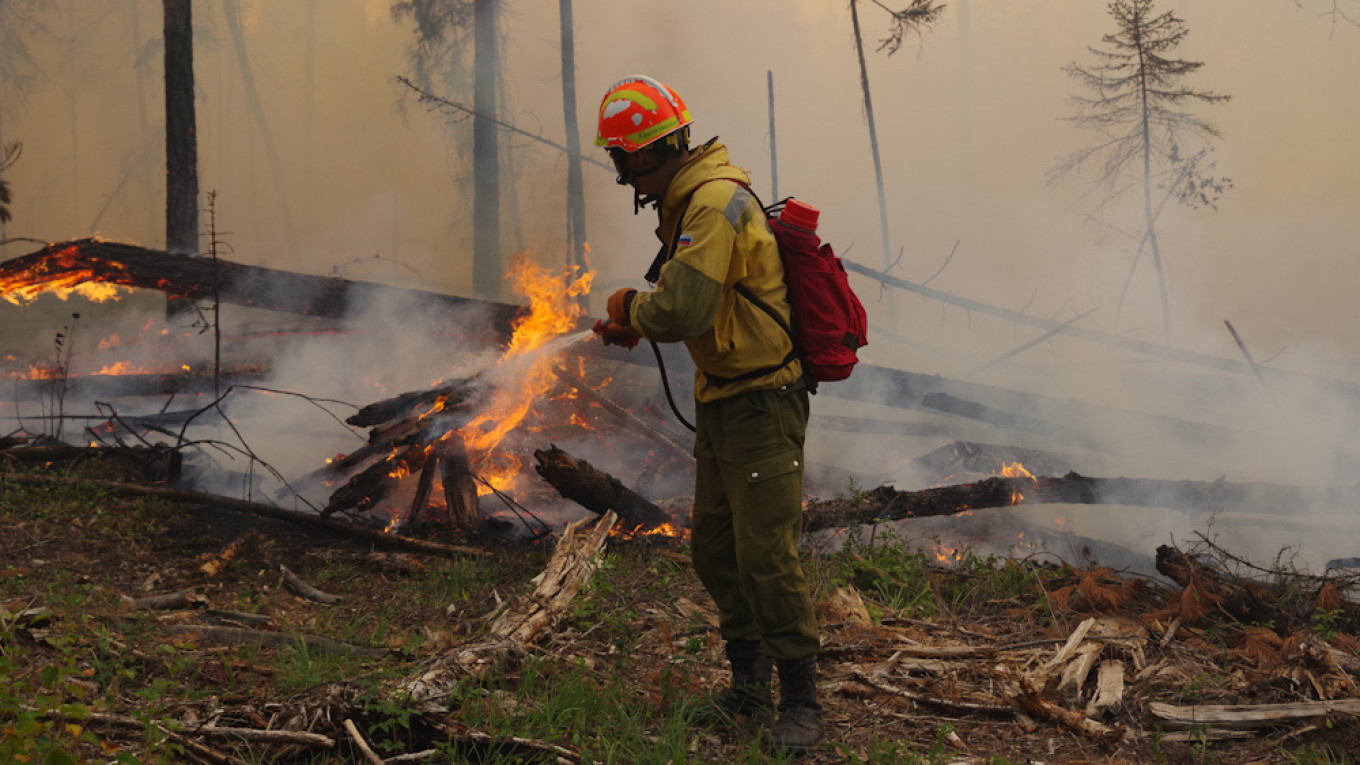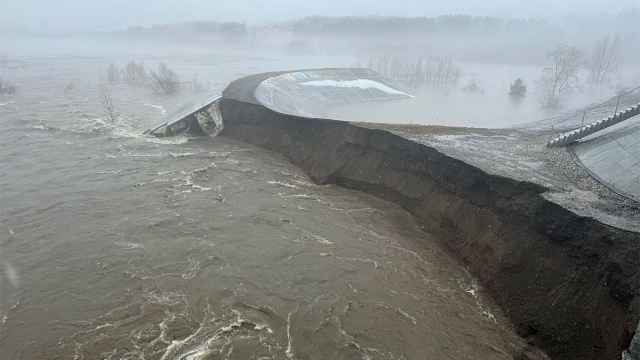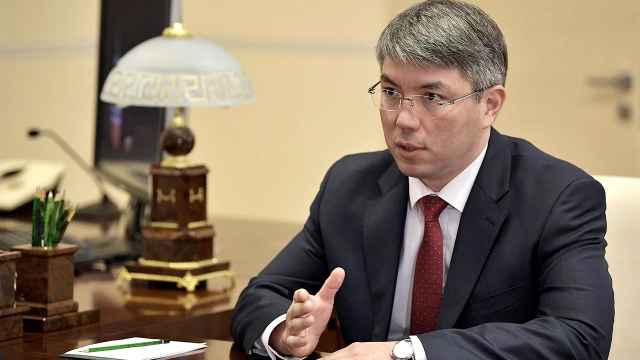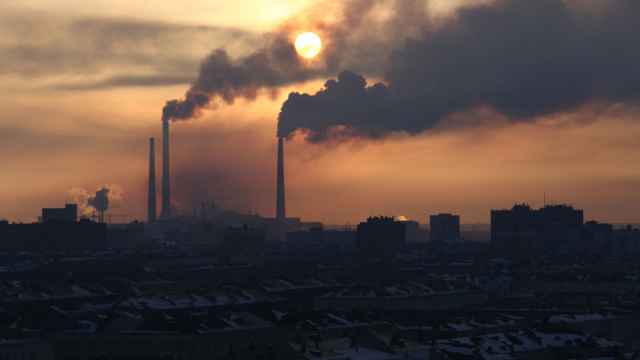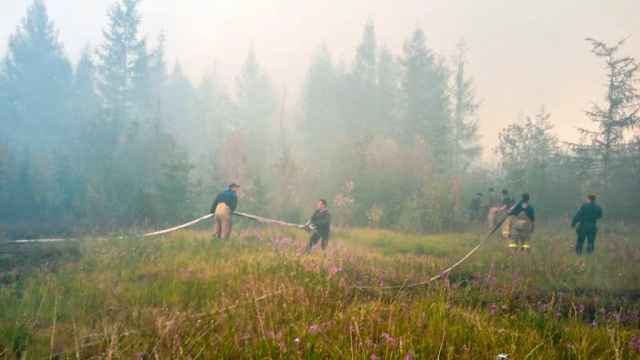Record heat and a historic drought in the Siberian republic of Sakha are furthering the spread of extensive wildfires across the region, regional officials have said.
The republic of Sakha, also known as Yakutia, is especially vulnerable to wildfires as more than 80% of the region is covered by boreal forest known as taiga. So far this year, Sakha has already seen record-breaking droughts and abnormally high temperatures, creating ideal conditions for severe wildfires.
More than 250 fires covering 607,000 hectares of land are currently burning across the republic, Russia’s largest region, the region’s emergencies ministry said Monday.
Smoke from the fires has reached the region’s capital of Yakutsk some 4,900 kilometers east of Moscow, damaging air quality and increasing levels of dangerous particles.
Regional head Aisen Nikolayev linked the fast-spreading wildfires to the historic drought conditions.
“There hasn’t been such a dry June [in Yakutsk] for almost 150 years,” Nikolayev said in a Facebook livestream last week. “Of course it leads to huge fires.”
Sakha also saw June temperatures 2-3 degrees Celsius higher than normal, the head of the region’s weather service Tatiana Marshalik told Yakutsk-based media. On June 22, the air temperature in Yakutsk reached 35.1 C, beating the previous record for the month of June by 3 degrees.
While local authorities put out 46 fires on Sunday, the remaining fires are still expanding, the emergencies ministry said. A state of emergency has been in effect in some parts of the republic since June.
During last summer’s record-breaking wildfire season, 70% of all forest fires across Russia were located in Sakha.
Those wildfires set a new record for CO2 emissions above the Arctic Circle.
June was an exceptionally hot month for the entire country, with temperatures in parts of the Russian Arctic rising to 48 С last week. Major cities like Moscow and St. Petersburg saw their highest June temperatures for over 100 years followed by heavy rainfall.
Climate change-related heatwaves have been linked not just to wildfires but also to permafrost collapse, agricultural losses and threats to human health.
A Message from The Moscow Times:
Dear readers,
We are facing unprecedented challenges. Russia's Prosecutor General's Office has designated The Moscow Times as an "undesirable" organization, criminalizing our work and putting our staff at risk of prosecution. This follows our earlier unjust labeling as a "foreign agent."
These actions are direct attempts to silence independent journalism in Russia. The authorities claim our work "discredits the decisions of the Russian leadership." We see things differently: we strive to provide accurate, unbiased reporting on Russia.
We, the journalists of The Moscow Times, refuse to be silenced. But to continue our work, we need your help.
Your support, no matter how small, makes a world of difference. If you can, please support us monthly starting from just $2. It's quick to set up, and every contribution makes a significant impact.
By supporting The Moscow Times, you're defending open, independent journalism in the face of repression. Thank you for standing with us.
Remind me later.


